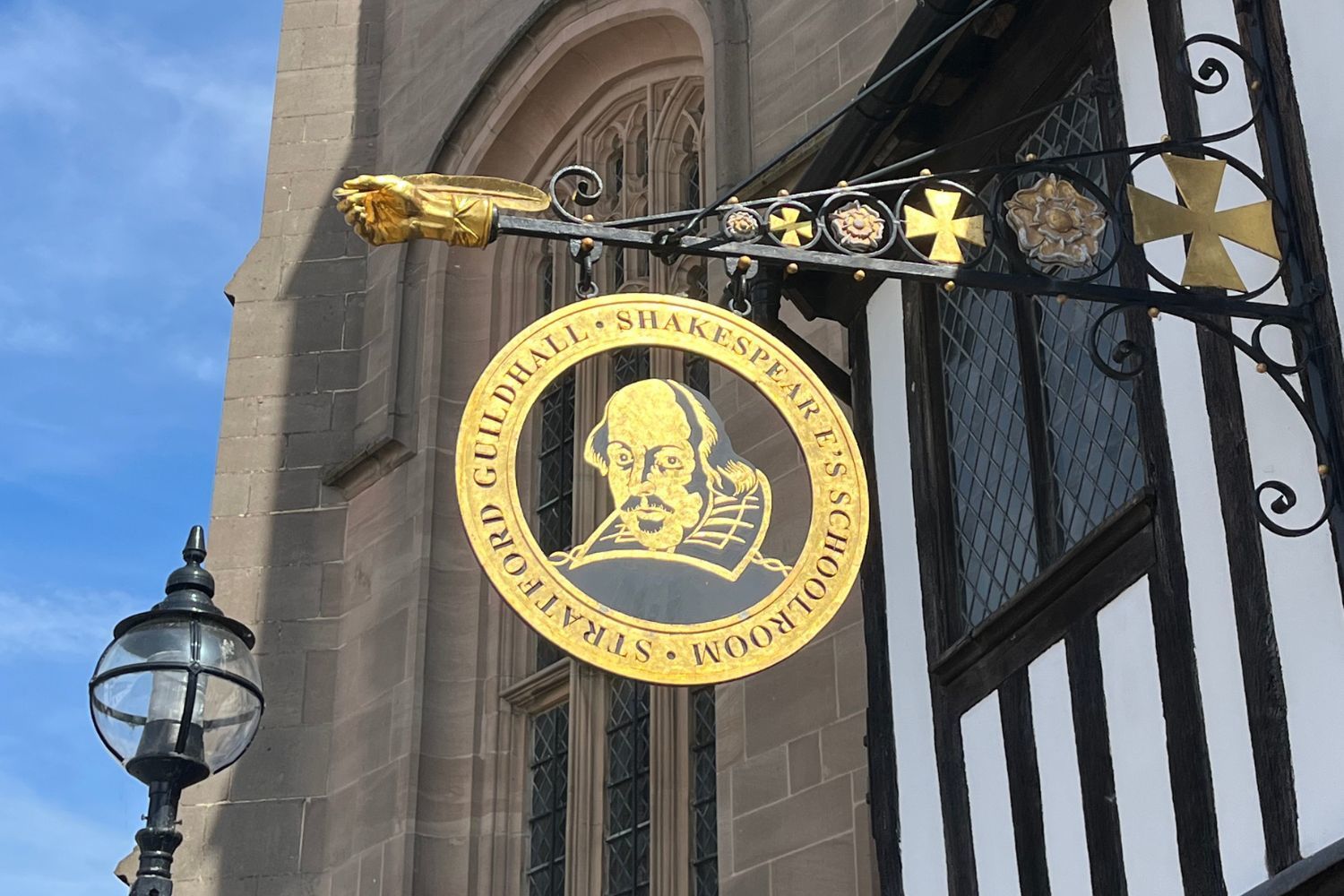“Man is but an ass if he go about / to expound this dream” is what Bottom says in A Midsummer Night’s Dream after spending the night inside the head of a donkey. Recalling it as he shakes off sleep, the whole experience seems so absurd that he assumes he must have imagined it. Nearing the end of first year, I find myself feeling a similar cocktail of bewilderment, disbelief, and shell-shock. I finished with a term on Shakespeare; it led me to notice the weirdnesses of his plays – the moments that they get stuck on, or do not work as expected. A body that has died gets up again; a tragic prop produces laughter instead of tears; intimate moments are actually obsessed by theatricality and performance. These surreal, topsy-turvy Shakespearean worlds started to feel oddly akin to the whirlwind of first year, or as a strangely fitting medium for re-reading and assessing the first plunge into student life.
“O, she’s warm!”: in the final scene of The Winter’s Tale, Hermione, believed dead, transforms from a statue into a living woman. This startling scene leaves the audience caught between scepticism of a theatrical trick or faith in a true marvel. But many Cambridge freshers will recognise the possibility for a seemingly impossible transformation. Hermione’s resurrection will be uncannily familiar to anyone who has dragged themselves out of bed at 9am after a Wednesday night Revs trip for the gruelling cycle to Sidgwick, or gone from professional slacker to academic weapon in one six-hour library session before a supervision. The scene declares that a last-minute transformation is always a viable option for those in desperate situations, although Paulina reminds us that its success rests on the belief of the audience (“It is required / You do awake your faith”). So to pull off your academic comeback, you have to hope that you don’t see your supervisor on the Mash dancefloor, or that they have as much blind trust in you as Leontes: “there’s magic in thy majesty”.
“Listen closer; the mad tongues in Shakespeare are often the ones speaking the most truth”
Shakespeare’s plays are littered with fools, whose nonsensical speeches form such indecipherable passages as this from King Lear: “The man that makes his toe / What he his heart should make, / Shall of a corn cry woe”. Having an awareness of the presence of words, yet without any meaning registering, is an all-too familiar feeling for any Cambridge student who has ever reached the hundredth page of their set reading for the week, or sat in a lecture theatre when they really should still be in bed, or when the lecturer decides to turn up without a PowerPoint, handout, or audible speaking voice. But listen closer; the mad tongues in Shakespeare are often the ones speaking the most truth. Lear’s Fool is the only character who points out to him, if indirectly, his mistake in giving his kingdom over to his two daughters, and Hamlet calling Polonius a “fishmonger” is actually a shrewd comment on how he treats his daughter, Ophelia. Look again at that critical article or essay draft and the nuggets of truth may start to shine through. As Polonius notes: “Though this be madness, yet there is / method in ’t”.
“All the world’s a stage”: Shakespeare’s plays have a lot to say about performance, acting, and theatre, referring constantly to the events of both the globe and The Globe. Cambridge can inevitably feel like a place with a pressure to perform, or, in particular, to play a role that is uncomfortable, or difficult, or strange. Yet Shakespeare’s plays draw our attention to the unstable line between performance and reality. In Henry IV, Part 1, Prince Hal messes around with Falstaff, imitating the role of his father, the king. During the parodic episode, he vows to banish Falstaff, “that old white-bearded Satan”. In Henry IV, Part 2, when Hal becomes king, he makes good on his promise: “I banish thee, on pain of death”. Despite being written about 200 years before the OED recognises its modern meaning, Shakespeare’s plays are a good reminder for any first year feeling out of place in Cambridge to “fake it ’till you make it”.
“A first-year student at Cambridge, dropped into a non-stop world of gowns, supervisions, and historic architecture, may feel similar, but with fewer fairies, magical statues, and shipwrecks”
“Be as thou wast wont to be. / See as thou wast wont to see. / Dian’s bud o’er Cupid’s flower / Hath such force and blessèd power” (A Midsummer Night’s Dream). The incantation that Oberon uses to wake Titania from the spell of “Cupid’s flower” that has made her fall in love with Bottom works just as well for curing heartache on the Cambridge dating scene as in the fairy woods. It is a reminder of just how fleeting infatuation can be, as well as the strange and influential role that our environment plays in the way we think and feel. The woods of A Midsummer Night’s Dream exist outside of the stuffy decorum of Athens, and a night spent wandering them sees everyone fall out of and in love with all the wrong people. Compare this to the red-brick wilderness of a Cambridge college: are they attractive, or do they just live in the staircase next door to yours? Choose your situationship wisely, or else you may have a similar reaction to Titania over the holidays: “My Oberon, what visions have I seen! / Methought I was enamored of an ass”.
Shakespeare’s characters are often at odds with their environment or themselves. They feel that “the time is out of joint” (Hamlet), or that they have lost sight of who they are: “Am I myself?” (The Comedy of Errors). A first-year student at Cambridge, dropped into a non-stop world of gowns, supervisions, and historic architecture, may feel similar, but with fewer fairies, magical statues, and shipwrecks. Yet Shakespeare’s plays also assert the possibility for reconciliation, reconfiguration, and translation into something new. “A sea-change / Into something rich and strange” is what Ariel promises in The Tempest. A year at Cambridge offers the opportunity to choose which weirdnesses and eccentricities of university life here you want to take on (and which you only want to live with for three years, maximum). Yet it also offers the chance to be changed in exciting and unexpected ways, too. “Proceed, proceed. We’ll begin these rites, / As we do trust they’ll end, in true delights” (As You Like It).


